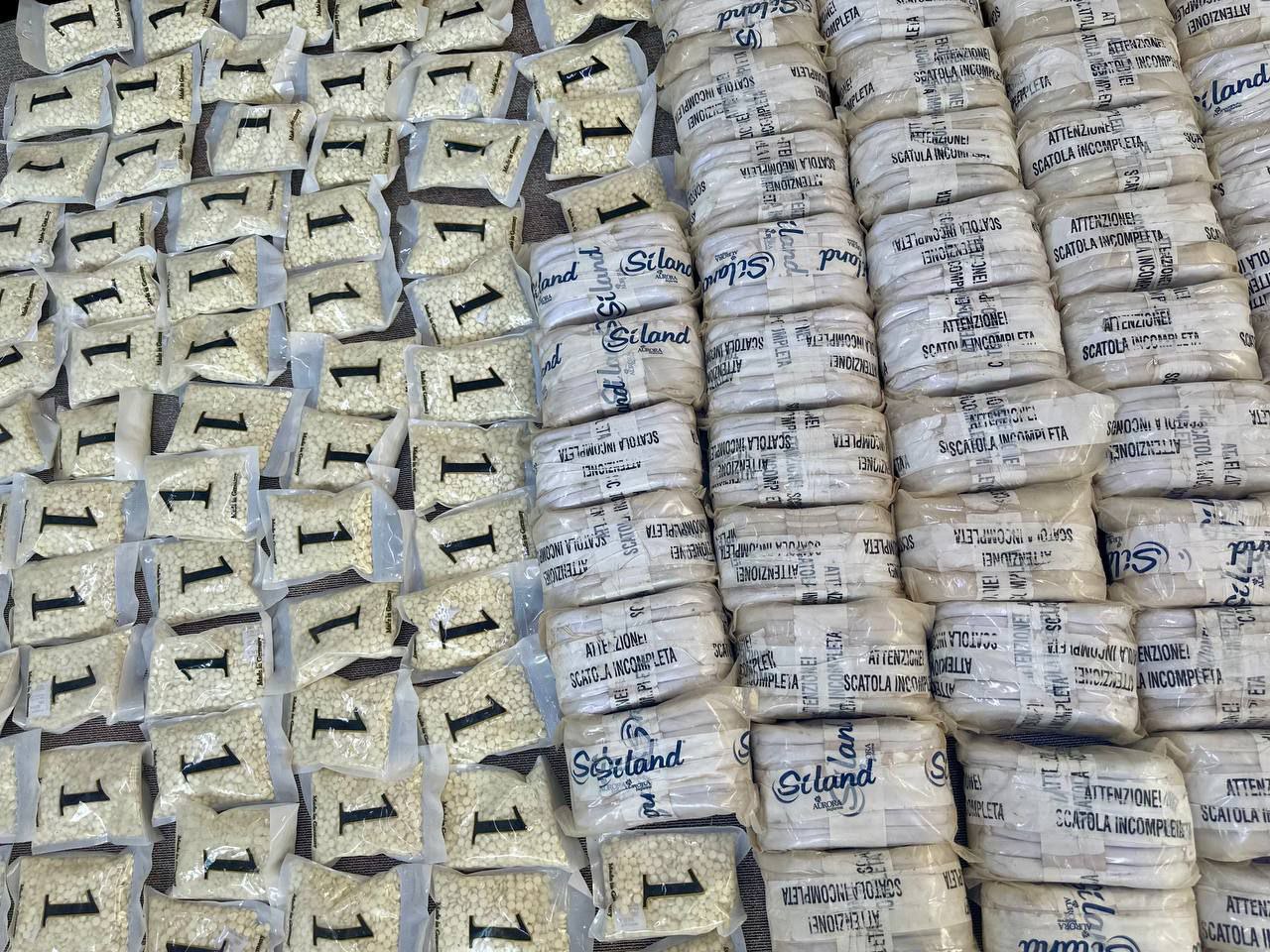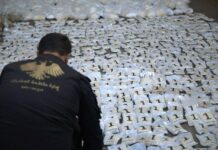
Syrian authorities intercepted a large-scale narcotics smuggling operation in Daraa Governorate this week, seizing more than 800,000 pills in one of the largest busts in the region in recent months. The Anti-Narcotics Department, operating under the Ministry of Interior, announced the seizure yesterday, May 6, in a statement posted on the ministry’s official Facebook page.
The ministry described the operation as part of a broader campaign to curb drug trafficking and restore order in southern Syria. The statement did not specify the type of narcotic pills seized, but the region has long been associated with the production and trafficking of Captagon, a powerful amphetamine.
Arrest Tied to Old Regime Networks
In a separate development, the Security Directorate in Tartous arrested retired Col. Salem Iskandar Tarraf, a former officer with close ties to key figures from the Bashar al-Assad era. Tarraf previously commanded the 123rd Brigade of the Republican Guard in Aleppo and later led the State Security branch in Sanamein, Daraa.
According to the Interior Ministry, Tarraf’s name was linked to various violations and criminal activity alongside Brig. Gen. Issam Zahreddine. The ministry alleged that Tarraf facilitated the entry of Hezbollah members into southern Syria and maintained “direct and close ties” with foreign-backed groups during his tenure. He was also accused of recruiting individuals connected to a March attack on security personnel in the coastal region. Tarraf has been referred to the Public Prosecution pending legal proceedings, the statement said.
Efforts to Break from a Legacy of Corruption
The Daraa bust and Tarraf’s arrest come amid heightened efforts by Syria’s new government to dismantle the remnants of a vast smuggling network that flourished under the previous regime. Authorities have launched targeted operations across multiple governorates in recent months, including raids in Damascus countryside and Homs that led to the seizure of drug factories and equipment.
Much of the prior smuggling infrastructure had been tied to the Fourth Division, a powerful military unit once accused of managing cross-border narcotics trafficking through proxy networks. With the unit’s influence curtailed, enforcement agencies now appear freer to pursue cases that were once considered “off-limits” under the Assad regime.








